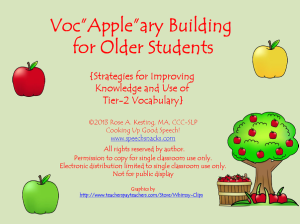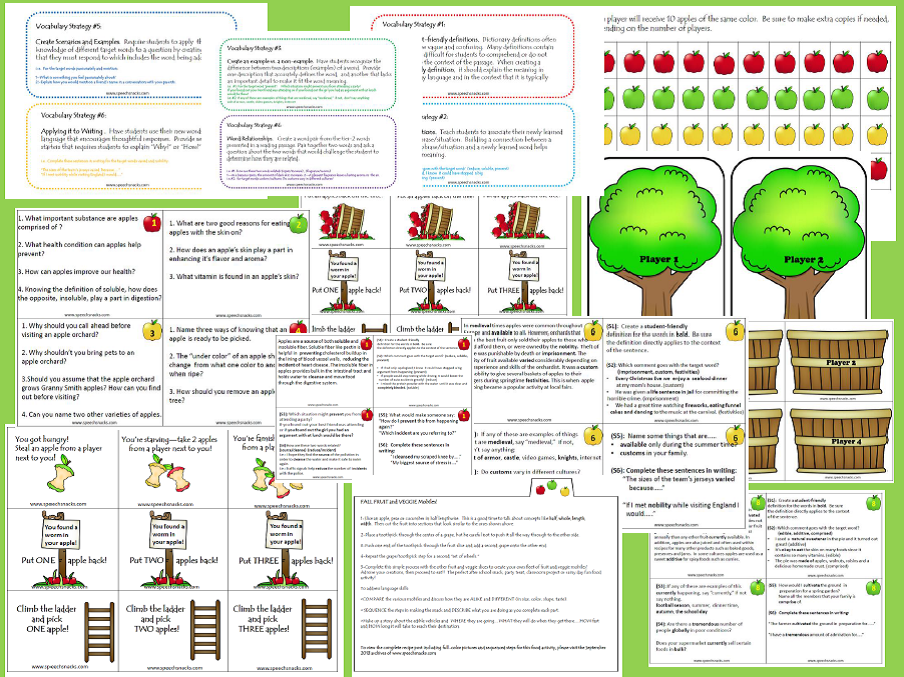What better way to celebrate a birthday than to get presents? Well here’s a fun little present Maria of Communication Station: Speech Therapy has cooked up just in time for Columbus Day. For those of you who follow her new and improved blog, Communication Station: Speech Therapy you know how much she loves to use thematic units to support communication development.
She’s done examples of how she creates thematic therapy units for younger children but haven’t shared anything for older students until today.
This packet is perfect for students in the upper elementary grades, middle school, and depending on cognitive level and communication goals, possibly some high school students as well.
It includes background knowledge/post learning worksheet where students have the opportunity to share what they already know, want to learn, and have learned after either doing their own research or reading the short story enclosed in the packet.
Along with the short story there is a comprehension questions worksheet that students can independently complete or complete as a group.
Next is a vocabulary synonyms match-up sheet that can be used to pre-teach vocabulary (note: vocabulary words highlighted in red in the short story), teach while reading using context clues, or post teach/review. Again this sheet can be completed independently on in a group.
Following this sheet, there is a writing prompt in which your students will be given the opportunity to use some creative thinking and reasoning skills to write a narrative about exploration. In addition, there is a guided questions sheet for younger students or students who have difficulty organizing their thoughts.
Finally, enclosed in this packet are 10 true/false cards. Each statement is about explorers and their role in history. Weather the facts are true or false they are followed by additional information your students can learn regarding each topic.
You can grab your free copy of this packet here! Be advised of Communication Station terms of use: the packet is for personal use only, redistribution of it is strictly prohibited. Feel free to direct your friends to her site for their free copy as well.
Enjoy and happy talking and exploring!
Maria Del Duca, M.S. CCC-SLP, is a pediatric speech-language pathologist in southern, Arizona. She owns a private practice, Communication Station: Speech Therapy, PLLC, and has a speech and language blog under the same name. Maria writes a monthly column on all topics related to child development, titled Kid Confidential, on the American Speech-Language and Hearing Associations blog, ASHAspere. She has experience in various settings such as private practice, hospital and school environments and has practiced speech pathology in NJ, MD, KS and now AZ. Maria has a passion for early childhood, autism spectrum disorders, rare syndromes, and childhood Apraxia of speech. For more information, visit her blog or find her on Facebook.

 Today I am very exited to bring you DAY 8 of my Birthday Month Giveaways by raffling off a giveaway by
Today I am very exited to bring you DAY 8 of my Birthday Month Giveaways by raffling off a giveaway by

 I am wrapping up the second week of my birthday giveaways by raffling off
I am wrapping up the second week of my birthday giveaways by raffling off 
 Today I am reviewing a great app, which targets verbal reasoning skills in children and adults.
Today I am reviewing a great app, which targets verbal reasoning skills in children and adults. 


 If your child has been identified as having a language impairment, there are simple activities you can do at home that facilitate language development. These activities work in conjunction with your child’s formal therapy sessions and the activities he or she may participate in at school, either in the classroom or in an adjunct therapy session.
If your child has been identified as having a language impairment, there are simple activities you can do at home that facilitate language development. These activities work in conjunction with your child’s formal therapy sessions and the activities he or she may participate in at school, either in the classroom or in an adjunct therapy session. Erica L. Fener, Ph.D., is Vice President, Strategic Growth at
Erica L. Fener, Ph.D., is Vice President, Strategic Growth at